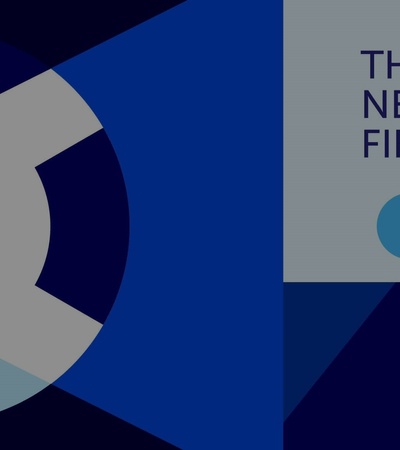How will the world be in 2073?
This question is at the core of this foresight report released in celebration of IE University’s 50th anniversary. The report dives into citizens' expectations and predictions for the year 2073, offering foresight into how people anticipate global challenges. It outlines potential advancements in healthcare, significant economic transformations, and the evolving role of artificial intelligence in education.
The report emphasizes the need to enhance human skills and Humanities education to ensure we are the owners of AI's evolution, not the other way around. It serves as a call to action for organizations, states, companies, and individuals to augment their foresight capabilities, ensuring that the silent technological revolutions foster prosperity for all.

Emerging and disruptive technologies are reshaping political power, societal prosperity, and planetary sustainability. At the same time, they cast shadows of uncertainty over employment, wealth distribution, and climate health. This evolving landscape requires us to anticipate and prepare for the future with insight and adaptability.
In the next 50 years, change will be a constant. With the rise of generative AI and numerous disruptive technologies, our world will transform rapidly. To prepare humanity for these changes and ensure we navigate them effectively, it will be essential to engage in foresight exercises collectively, ensuring active participation from all stakeholders.
In this report, we conducted three iterations of measurement to understand the perspectives of 8,000 citizens from G20 countries on established foresight frameworks. This process was further enriched by insights from 15 futurists or experts in their respective fields, who provided commentary.
Chapter 1:
Emerging Technologies, Governance, and Ethics
In an age defined by the rapid pace of technological advancement, the governance of transformative technologies and the ethical dimensions of innovation hold paramount significance for the next 50 years. Our choices as a society regarding the governance of Artificial Intelligence or the use of biotechnology in our bodies will have profound implications for the future of humankind.
These choices will influence not only the progress and well-being of our communities but also the very essence of what it means to be human. Our analysis found that there is no consensus among G20 citizens when it comes to future technological scenarios. Citizens are split between a future where technology fosters unprecedented societal progress, and a future marked by increased surveillance and ethical dilemmas. However, there is agreement on two key points: the positive role of AI in our societies five decades from now and the urgent need to address the climate crisis as our most significant challenge in the future.
Chapter 2:
Economy and Prosperity
In the next 50 years, the G20 economies will undergo a profound transformation, one in which technology will play a pivotal role. This section explores various dimensions of this economic future, encompassing wealth distribution, financial prospects, and the evolving nature of work. It offers a glimpse into the potential geopolitical shifts that lie ahead, painting a picture of the technology-driven economic landscape that awaits future generations.
A substantial percentage of G20 citizens envision a more prosperous future for themselves and their country, yet a noticeable North-South divide emerges, with the latter showing greater optimism. Amidst increasing disparity in wealth distribution across many G20 countries, there is a prevailing consensus among citizens that the economy will become even more unequal over the next five decades. To navigate these uncertainties, citizens are considering different resilience strategies, such as learning new skills and increasing technological literacy.
Chapter 3:
Environment and Climate Crisis
By 2073, more than 3 billion humans could live in extreme heat as a consequence of the rapid temperature rise associated with climate change and the increase in population. This projection indicates that approximately 30% of the world’s population will inhabit regions with an average temperature exceeding 29°C within the next five decades.
Much like scientists, citizens of G20 countries are pessimistic regarding the future of the climate crisis, and doubt humankind will be able to revert its effects. In the spectrum of climate-related risks, encompassing water conflicts due to drought, wildfires, the loss of biodiversity, and mass climate migrations, none emerges as a dominant threat; each bears equal relevance in the eyes of the public. However, amidst this array of challenges, a glimmer of optimism arises, as a prevailing majority of citizens express their confidence in the potential for a government-led green energy transition.
Chapter 4:
Existential Risks
Existential risks, or threats capable of eradicating humanity or severely limiting its future, present a complex challenge. These risks can encompass a wide range of scenarios, from the catastrophic consequences of advanced technologies gone awry to global environmental crises and unforeseen events with the potential to reshape the course of civilization. Addressing existential risks needs a multi-faceted approach that combines foresight, proactive research, and robust risk mitigation strategies.
G20 citizens do not rally around a single predominant risk. The absence of a singular source of concern challenges and impels us to consider: how should we, as individuals and as a society, prepare for a future marked by diverse and complex threats? Yet, there is consensus among citizens regarding the response to existential risks, as a majority would choose to mobilize alongside others to confront the threat, rather than opting to flee or being overwhelmed and unable to react.
Chapter 5:
Education and the Future of Knowledge
Academia holds the duty of educating citizens and providing them with the knowledge and perspective needed to identify and anticipate forthcoming risks. As we look ahead to the next 50 years, the tools, formats, and dynamics of education will continue to undergo transformative changes, largely driven by technology.
G20 citizens foresee a future where technology dissolves the geographical boundaries of education, enabling personalized, digitally driven learning experiences. They imagine a shift towards immersive, hands-on education, grounding students in real-world applications and human connections. But above all, citizens place great importance on the Humanities, recognizing it as a fundamental instrument for shaping empowered individuals capable of addressing the challenges of the next 50 years. How we navigate this landscape will define the generations to come, underscoring the need for flexibility, and creativity.






